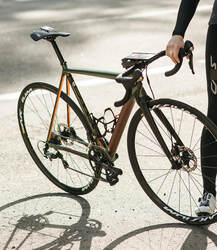
Facing allegations of doping throughout his career, the seven-time Tour de France winner and cancer survivor was booted recently from future competition by the U.S. Anti-Doping Agency (USADA),which claims to have proof that he used performance-enhancing drugs. Previously staunch supporters such as Nike and Anheuser-Busch have dropped their sponsorships. Contributors to Armstrong’s cancer foundation want their money back, and he is no longer the foundation’s chairman. This week he will learn whether the International Cycling Federation will strip him of his past medals. (UPDATE: The union did indeed strip Armstrong of his Tour de France titles.)
Over lunch a few days ago, a friend remarked, “Be glad you aren’t Lance Armstrong’s PR guy.”
I don’t know who counsels Armstrong on public relations, or even if he has one. But since my friend also asked how I would advise Armstrong, I shared my perspective—and offer it here to the cycling legend if perchance he stops by this blog.
Dear Lance: I have no idea if you used performance-enhancing drugs. I have seen the USADA evidence, but as there are arguments either way, I won't make a judgment here. Rather, I’ll give my perspective under both scenarios.
If you’re guilty of doping: Come clean. Call a news conference, confess it, take full responsibility—no excuses, no blaming other factors and pressures. Accept the judgments of the cycling associations. Apologize sincerely to your fans and supporters. Admit that you made terrible decisions and lied to cover them. Then show that your remorse is more than mere words by setting a new course for your life. Take the same passion you showed on the bike and through your cancer foundation to declare war on drug use in competitive sports. Set up a new organization to educate athletes and equip them to resist or abandon doping. Be the visible, active spokesman for how doping may bring temporary success but lifelong disgrace. In better times, you set a powerful example of determination that inspired millions. You can do that again if you repent of your deception, accept the condemnation and use your experience to help others set a better course.
If you’re not guilty of doping: Continue to maintain your innocence but raise the dialogue to a new level. I’d suggest something similar to that noted above. Tell the world that while you’ve been unjustly accused, you have learned that you cannot turn a blind eye to the prevalence of doping and the risk it poses to future competitors and the sport itself. So instead of fighting the cycling associations and other accusers, you are going to invest that energy into efforts to eliminate performance-enhancing drug use. Establish the new organization and be as tireless in it as you have been with Livestrong. If the conversation is going to continue on this issue, you should embrace it, then direct it toward something constructive and meaningful. Granted, this approach will be greeted with skepticism. But if you are truly innocent and you pour every effort into making this campaign a successful, lifelong pursuit, the final judgment of the people will hinge upon your actions, not on the words of others.
In both scenarios, the driving forces are honesty, sincerity, commitment and integrity. It’s quite possible that the approach will have no positive influence on your reputation. But I encourage you to do it anyway—because it’s the right thing to do. And doing the right thing is how you’ve presented yourself, be it in truth or in falsehood.

 RSS Feed
RSS Feed
